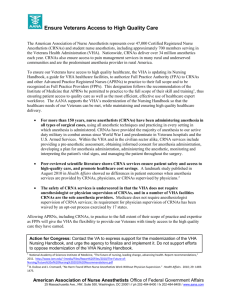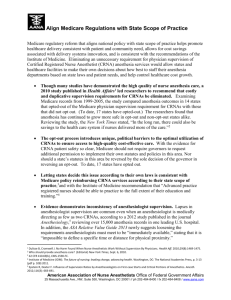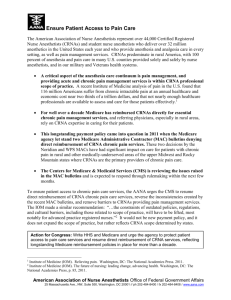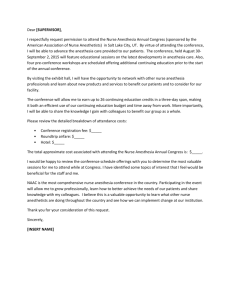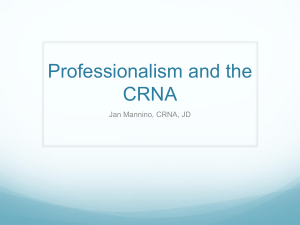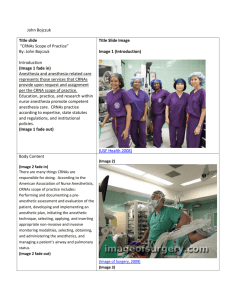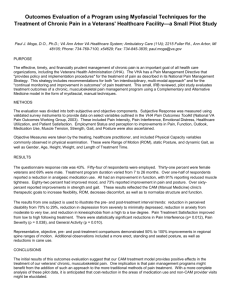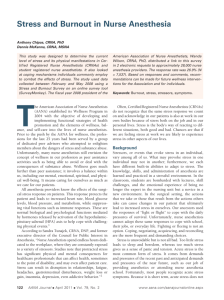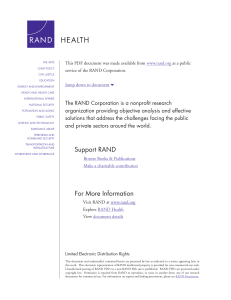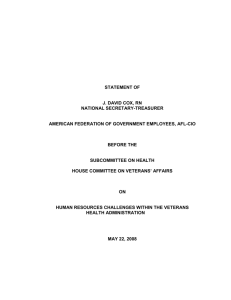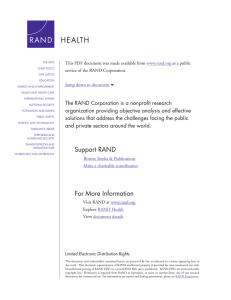Ensure Veterans Access to High Quality Care
advertisement
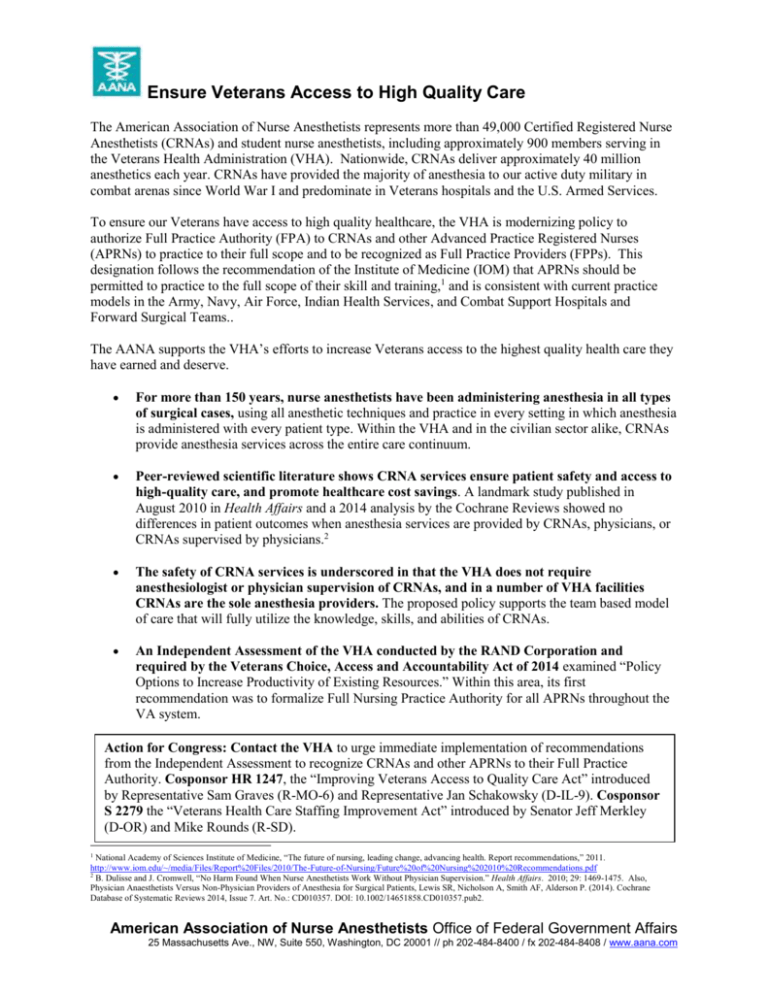
Ensure Veterans Access to High Quality Care The American Association of Nurse Anesthetists represents more than 49,000 Certified Registered Nurse Anesthetists (CRNAs) and student nurse anesthetists, including approximately 900 members serving in the Veterans Health Administration (VHA). Nationwide, CRNAs deliver approximately 40 million anesthetics each year. CRNAs have provided the majority of anesthesia to our active duty military in combat arenas since World War I and predominate in Veterans hospitals and the U.S. Armed Services. To ensure our Veterans have access to high quality healthcare, the VHA is modernizing policy to authorize Full Practice Authority (FPA) to CRNAs and other Advanced Practice Registered Nurses (APRNs) to practice to their full scope and to be recognized as Full Practice Providers (FPPs). This designation follows the recommendation of the Institute of Medicine (IOM) that APRNs should be permitted to practice to the full scope of their skill and training,1 and is consistent with current practice models in the Army, Navy, Air Force, Indian Health Services, and Combat Support Hospitals and Forward Surgical Teams.. The AANA supports the VHA’s efforts to increase Veterans access to the highest quality health care they have earned and deserve. For more than 150 years, nurse anesthetists have been administering anesthesia in all types of surgical cases, using all anesthetic techniques and practice in every setting in which anesthesia is administered with every patient type. Within the VHA and in the civilian sector alike, CRNAs provide anesthesia services across the entire care continuum. Peer-reviewed scientific literature shows CRNA services ensure patient safety and access to high-quality care, and promote healthcare cost savings. A landmark study published in August 2010 in Health Affairs and a 2014 analysis by the Cochrane Reviews showed no differences in patient outcomes when anesthesia services are provided by CRNAs, physicians, or CRNAs supervised by physicians.2 The safety of CRNA services is underscored in that the VHA does not require anesthesiologist or physician supervision of CRNAs, and in a number of VHA facilities CRNAs are the sole anesthesia providers. The proposed policy supports the team based model of care that will fully utilize the knowledge, skills, and abilities of CRNAs. An Independent Assessment of the VHA conducted by the RAND Corporation and required by the Veterans Choice, Access and Accountability Act of 2014 examined “Policy Options to Increase Productivity of Existing Resources.” Within this area, its first recommendation was to formalize Full Nursing Practice Authority for all APRNs throughout the VA system. Action for Congress: Contact the VHA to urge immediate implementation of recommendations from the Independent Assessment to recognize CRNAs and other APRNs to their Full Practice Authority. Cosponsor HR 1247, the “Improving Veterans Access to Quality Care Act” introduced by Representative Sam Graves (R-MO-6) and Representative Jan Schakowsky (D-IL-9). Cosponsor S 2279 the “Veterans Health Care Staffing Improvement Act” introduced by Senator Jeff Merkley (D-OR) and Mike Rounds (R-SD). National Academy of Sciences Institute of Medicine, “The future of nursing, leading change, advancing health. Report recommendations,” 2011. http://www.iom.edu/~/media/Files/Report%20Files/2010/The-Future-of-Nursing/Future%20of%20Nursing%202010%20Recommendations.pdf 2 B. Dulisse and J. Cromwell, “No Harm Found When Nurse Anesthetists Work Without Physician Supervision.” Health Affairs. 2010; 29: 1469-1475. Also, Physician Anaesthetists Versus Non-Physician Providers of Anesthesia for Surgical Patients, Lewis SR, Nicholson A, Smith AF, Alderson P. (2014). Cochrane Database of Systematic Reviews 2014, Issue 7. Art. No.: CD010357. DOI: 10.1002/14651858.CD010357.pub2. 1 American Association of Nurse Anesthetists Office of Federal Government Affairs 25 Massachusetts Ave., NW, Suite 550, Washington, DC 20001 // ph 202-484-8400 / fx 202-484-8408 / www.aana.com
